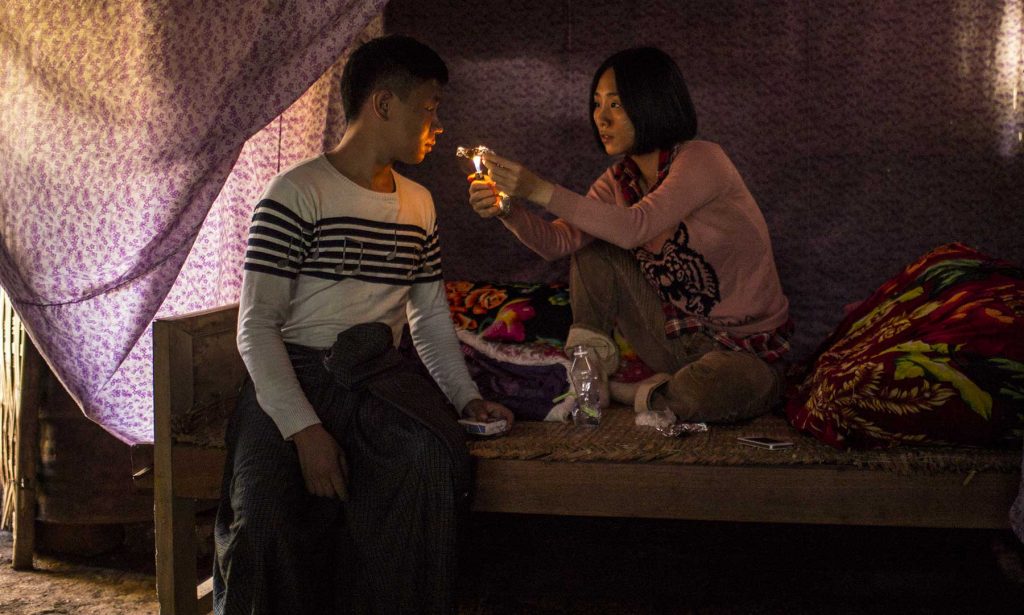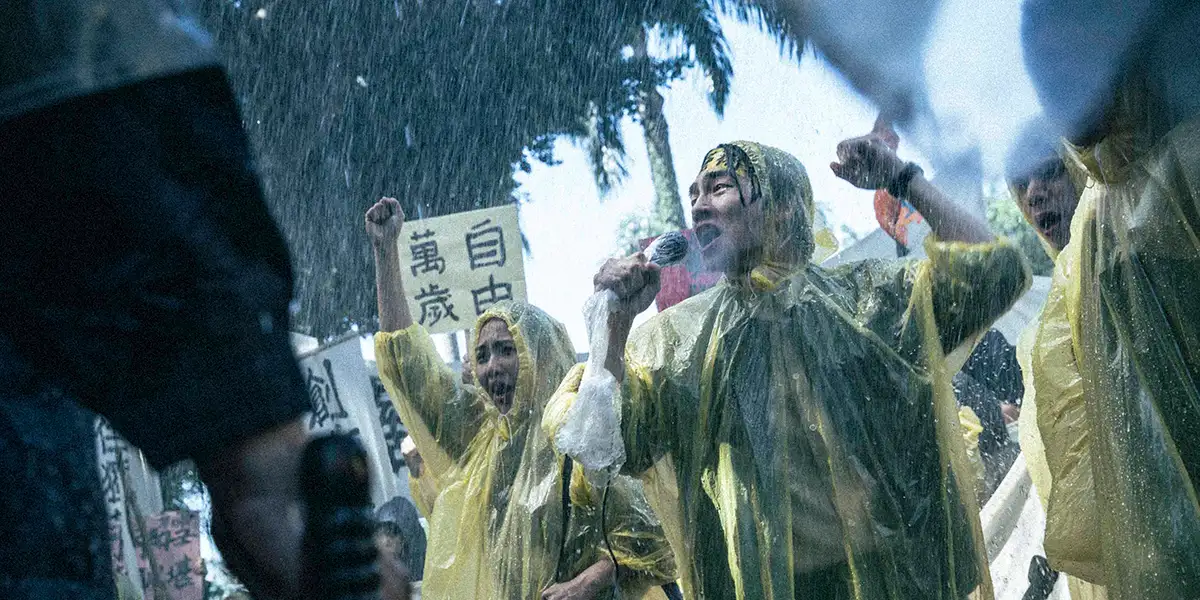Ice Poison is another solid addition to the neorealist genre that delicately depicts the life of two individuals navigating poverty in modern Asia.
Generally speaking, films that choose to adopt a neorealist style tend to be more difficult for regular audiences to enjoy and invest in. This is due to their slow pace, passive shooting style, and simple plots, all of which are staples of the style, which originated in 1940’s Italy with films such as Vittorio De Sica’s Bicycle Thieves and Roberto Rossellini’s Rome, Open City. However, those who choose to indulge themselves in this micro-genre are often rewarded with deeply affecting stories that can touch on timely subjects. In his 2014 film Ice Poison, which will be shown at the Taiwan Film Festival Edinburgh from September 18th through the 27th, director Midi Z (Nina Wu, The Road to Mandalay) draws heavily from neorealist films such as Satyajit Ray’s landmark The Apu Trilogy and Kelly Reichardt’s 2008 drama Wendy and Lucy to create a very rewarding movie, if you have the patience to watch.
At the start, Ice Poison follows A-Hong (Wang Shin-Hong) and his elderly father, who own a vegetable farm somewhere in southern Myanmar, on the outskirts of a city. While the farm produces a large yield, the two have a difficult time making ends meet due to the low price of their crops and their inability to transport them to other areas. These opening scenes are captured in steady long shots with minimal movement or cutting. It is in these opening minutes that most viewers can gauge if they will enjoy the film. In its 95-minute runtime, Midi Z only cuts when necessary, and only moves the camera when characters are riding vehicles. Instead, he chooses to populate his films with carefully composed shots that give the viewer multiple points to focus on without feeling intrusive.
As Hong continues his fruitless search for work, we are shown other members of his community, all on the edge of poverty like himself. Each person has been subject to the same woes of late-stage capitalism as himself, and they have all resigned themselves to the bottom of the social ladder. However, Z does not romanticize or exploit their struggle in the way a lesser director would: he treats his characters with dignity and respect and passes no judgment on their character or circumstance. Finally, Hong’s father comes across a man with an old taxi scooter, which Hong can use to transport both goods and people. In a rushed conversation, Hong and his father agree to lend their only cow as a deposit, with the condition that it be slaughtered and sold for meat if the pair cannot make their payments. It’s a rash decision with a high-risk factor, but Z has set up their situation well enough that the choice makes sense, even if it may prove to be a mistake.

From here, Ice Poison’s narrative shifts. Hong begins his new job transporting people from a bus station, but has trouble attracting customers until he berates San-Mei (Wu Ke-Xi) into accepting a ride to her parents’ house, where her grandfather is near death. Once at the house, it is revealed that San-Mei was tricked into marrying an older man in China and is only staying with him for the sake of her child. Like in the first half, San-Mei explains the difficulty in finding work to support herself and the constant allure of drug trafficking to make ends meet, a proposition also given to Hong earlier in the film, which he declined. The remainder of the film sees San-Mei and Hong strike up a tenuous friendship fueled both by loneliness and addiction that sets them on a path towards a tragic but inevitable climax.
When the credits roll, it becomes clear that Z’s film is first and foremost meant to be seen by people who live in similar areas to where the film takes place. With its frequent references to Asian politics such as the hassle of acquiring a work visa, the very specific type of poverty the characters inhabit, and the vague news of a war “in the north” throughout, the movie would feel alien to most viewers if not for the central dynamic between the two protagonists, who have authentic chemistry that makes their scenes together feel like something that could actually happen. Overall, Ice Poison doesn’t break any new ground in terms of its style or story, but Z’s film deserves a wide audience and a place among the better modern realism films.
Ice Poison was screened from 18th-27th September at the Taiwan Film Festival Edinburgh.

 loudandclearreviews.com
loudandclearreviews.com
